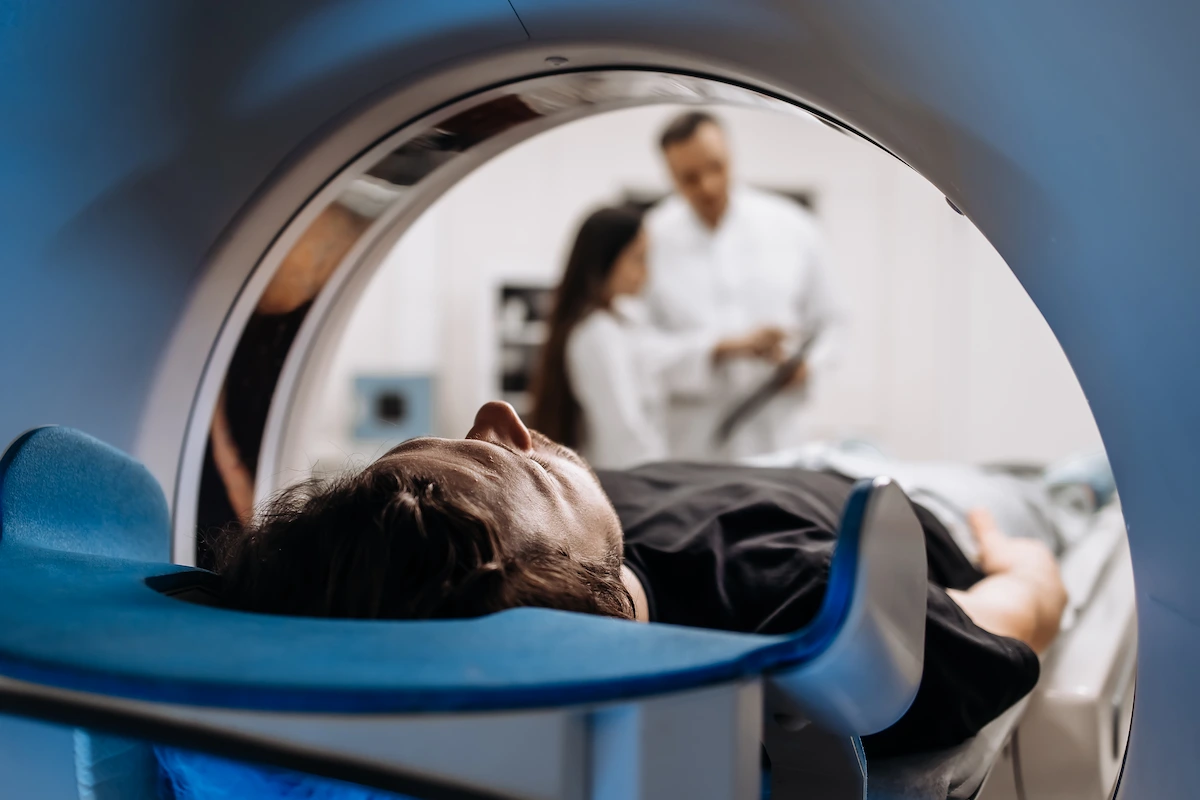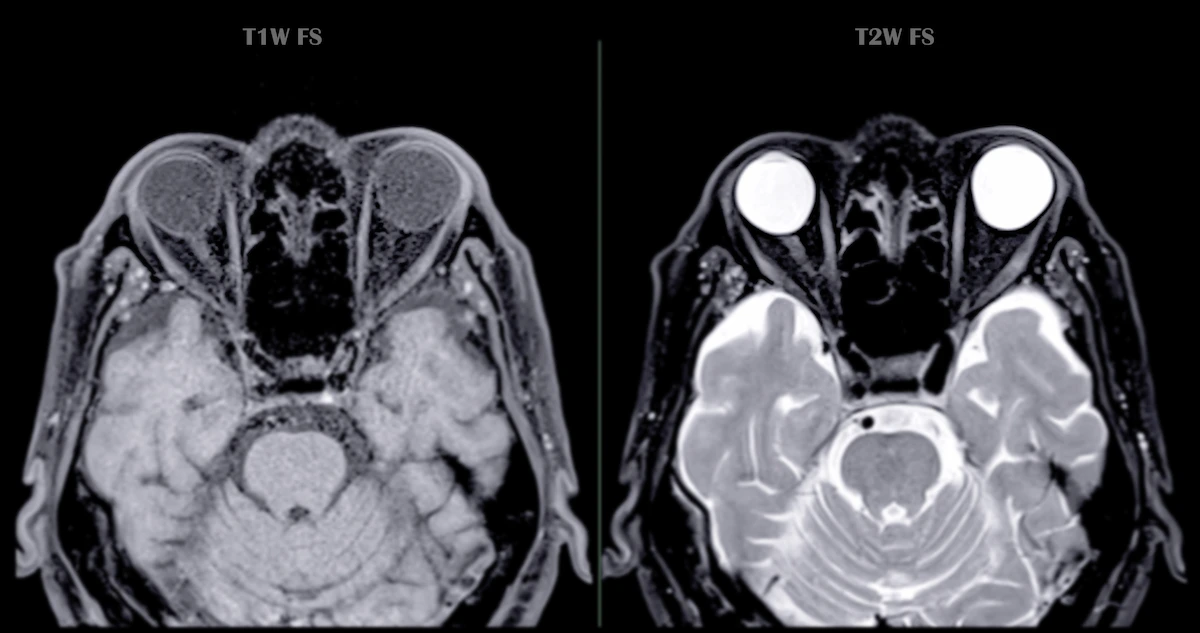MRI Contrast Side Effects: Risks and Benefits in Miami

Magnetic Resonance Imaging (MRI) is a powerful diagnostic tool that uses magnetic fields and radio waves to create detailed images of the inside of your body. In some cases, a contrast agent is used to enhance the clarity of these images. If you’re in Miami and scheduled for an MRI, you might be wondering about the potential risks and side effects of MRI contrast.
This article provides a comprehensive overview of MRI contrast, its uses, potential side effects, and important safety considerations. We’ll also discuss how it differs from a CT scan and guide you towards making informed decisions about your medical imaging.
What is Gadolinium Contrast?
Gadolinium is the most common contrast agent used in MRI scans. It’s a metallic element that, when injected into your bloodstream, can make certain tissues and structures show up more clearly on the MRI images.
Gadolinium Contrast: When is it Used?
Gadolinium contrast is often used to:
- Enhance the visualization of blood vessels, tumors, infections, and inflammation.
- Help doctors distinguish between normal and abnormal tissue.
- Provide more detailed images for diagnosis and treatment planning.
MRI vs. CT Scan: A Key Difference
It’s important to understand the difference between an MRI and a CT scan:
- MRI (Magnetic Resonance Imaging): Uses magnetic fields and radio waves to create detailed images.
- CT Scan (Computed Tomography Scan): Uses X-rays to create cross-sectional images of the body.
MRI and CT scans are used for different purposes, and their use of contrast agents also differs.

MRI Contrast Side Effects: Understanding the Risks
While generally safe, MRI contrast agents can cause some side effects. Most are mild, but it’s important to be aware of the possibilities.
- Common Side Effects:
- Headache
- Nausea
- Dizziness
- Pain or burning at the injection site
- Less Common, but More Serious Side Effects:
- Allergic reactions (hives, itching, rash)
- Kidney problems, especially in those with pre-existing kidney disease.
- Nephrogenic Systemic Fibrosis (NSF): A rare but severe condition that can affect the skin and other tissues, almost exclusively seen in patients with severe kidney disease.
Gadolinium Toxicity: A Rare but Serious Concern
Gadolinium toxicity is a rare but serious concern, particularly in patients with kidney problems. It occurs when gadolinium is retained in the body, potentially leading to long-term health issues.
What to Do the Night Before an MRI with Contrast
Your doctor or the MRI facility in Miami will provide specific instructions for your MRI. General guidelines may include:
- Fasting: You might be asked to avoid eating or drinking for a few hours before the scan.
- Medications: Inform your doctor about any medications you’re taking, as some might need to be adjusted.
- Jewelry and Metal: Remove any jewelry or metal objects, as they can interfere with the MRI.
Primary Doctor in Miami: Your Resource for Medical Imaging Information
If you have concerns about undergoing an MRI with contrast, it’s always best to discuss them with your doctor. A primary doctor in Miami can:
- Explain the reasons for the MRI and the use of contrast.
- Assess your individual risk factors.
- Answer your questions and address your concerns.
- Provide a referral to a radiologist if needed.
Key Takeaways:
- MRI contrast agents, while generally safe, can cause some side effects, mostly mild.
- Gadolinium toxicity is a rare but serious concern, particularly in patients with kidney problems.
- Always discuss your concerns about MRI contrast with your doctor.
Remember, this article is for informational purposes only and should not be considered medical advice. Always consult with a qualified healthcare professional for personalized guidance and treatment.
FAQs: MRI Contrast Side Effects
- I have kidney problems. Is it safe for me to have an MRI with contrast?
If you have kidney problems, it’s crucial to inform your doctor before undergoing an MRI with contrast. Gadolinium contrast can be harmful to individuals with severe kidney disease. Your doctor will weigh the risks and benefits and determine if the contrast is necessary and safe for you. - What if I have an allergy to shellfish? Is it related to gadolinium contrast?
Shellfish allergies are not related to gadolinium contrast. Gadolinium is a metallic element, not a shellfish derivative. However, it’s still essential to inform your doctor of any allergies you have before an MRI. - Will I feel anything when the contrast is injected?
You might feel a brief cold sensation or a slight pressure during the injection. Some people experience a metallic taste in their mouth, which is temporary. - How long does it take to recover from an MRI with contrast?
There is typically no recovery time after an MRI with contrast. You can usually resume your normal activities immediately. - I’m feeling anxious about having an MRI. Can I take anything to help?
If you experience anxiety during MRIs, talk to your doctor. They might offer options like anti-anxiety medication or suggest relaxation techniques to help you cope with the procedure.
Contact Us
Hiriart & Lopez MD, LLC
9950 SW 107th Ave STE 101,
Miami, FL 33176
305-274-8779
Phone: (305) 274-8779
Fax: (305) 274-0646
OPENING HOURS
Monday 7:30 AM–4:30 PM
Tuesday 7:30 AM–4:30 PM
Wednesday 7:30 AM–4:30 PM
Thursday 7:30 AM–4:30 PM
Friday 7:30–11 AM
Saturday Closed
Sunday Closed
OFFICE LOCATION
MRI Contrast Side Effects: Risks and Benefits in Miami

Magnetic Resonance Imaging (MRI) is a powerful diagnostic tool that uses magnetic fields and radio waves to create detailed images of the inside of your body. In some cases, a contrast agent is used to enhance the clarity of these images. If you’re in Miami and scheduled for an MRI, you might be wondering about the potential risks and side effects of MRI contrast.
This article provides a comprehensive overview of MRI contrast, its uses, potential side effects, and important safety considerations. We’ll also discuss how it differs from a CT scan and guide you towards making informed decisions about your medical imaging.
What is Gadolinium Contrast?
Gadolinium is the most common contrast agent used in MRI scans. It’s a metallic element that, when injected into your bloodstream, can make certain tissues and structures show up more clearly on the MRI images.
Gadolinium Contrast: When is it Used?
Gadolinium contrast is often used to:
- Enhance the visualization of blood vessels, tumors, infections, and inflammation.
- Help doctors distinguish between normal and abnormal tissue.
- Provide more detailed images for diagnosis and treatment planning.
MRI vs. CT Scan: A Key Difference
It’s important to understand the difference between an MRI and a CT scan:
- MRI (Magnetic Resonance Imaging): Uses magnetic fields and radio waves to create detailed images.
- CT Scan (Computed Tomography Scan): Uses X-rays to create cross-sectional images of the body.
MRI and CT scans are used for different purposes, and their use of contrast agents also differs.

MRI Contrast Side Effects: Understanding the Risks
While generally safe, MRI contrast agents can cause some side effects. Most are mild, but it’s important to be aware of the possibilities.
- Common Side Effects:
- Headache
- Nausea
- Dizziness
- Pain or burning at the injection site
- Less Common, but More Serious Side Effects:
- Allergic reactions (hives, itching, rash)
- Kidney problems, especially in those with pre-existing kidney disease.
- Nephrogenic Systemic Fibrosis (NSF): A rare but severe condition that can affect the skin and other tissues, almost exclusively seen in patients with severe kidney disease.
Gadolinium Toxicity: A Rare but Serious Concern
Gadolinium toxicity is a rare but serious concern, particularly in patients with kidney problems. It occurs when gadolinium is retained in the body, potentially leading to long-term health issues.
What to Do the Night Before an MRI with Contrast
Your doctor or the MRI facility in Miami will provide specific instructions for your MRI. General guidelines may include:
- Fasting: You might be asked to avoid eating or drinking for a few hours before the scan.
- Medications: Inform your doctor about any medications you’re taking, as some might need to be adjusted.
- Jewelry and Metal: Remove any jewelry or metal objects, as they can interfere with the MRI.
Primary Doctor in Miami: Your Resource for Medical Imaging Information
If you have concerns about undergoing an MRI with contrast, it’s always best to discuss them with your doctor. A primary doctor in Miami can:
- Explain the reasons for the MRI and the use of contrast.
- Assess your individual risk factors.
- Answer your questions and address your concerns.
- Provide a referral to a radiologist if needed.
Key Takeaways:
- MRI contrast agents, while generally safe, can cause some side effects, mostly mild.
- Gadolinium toxicity is a rare but serious concern, particularly in patients with kidney problems.
- Always discuss your concerns about MRI contrast with your doctor.
Remember, this article is for informational purposes only and should not be considered medical advice. Always consult with a qualified healthcare professional for personalized guidance and treatment.
FAQs: MRI Contrast Side Effects
- I have kidney problems. Is it safe for me to have an MRI with contrast?
If you have kidney problems, it’s crucial to inform your doctor before undergoing an MRI with contrast. Gadolinium contrast can be harmful to individuals with severe kidney disease. Your doctor will weigh the risks and benefits and determine if the contrast is necessary and safe for you. - What if I have an allergy to shellfish? Is it related to gadolinium contrast?
Shellfish allergies are not related to gadolinium contrast. Gadolinium is a metallic element, not a shellfish derivative. However, it’s still essential to inform your doctor of any allergies you have before an MRI. - Will I feel anything when the contrast is injected?
You might feel a brief cold sensation or a slight pressure during the injection. Some people experience a metallic taste in their mouth, which is temporary. - How long does it take to recover from an MRI with contrast?
There is typically no recovery time after an MRI with contrast. You can usually resume your normal activities immediately. - I’m feeling anxious about having an MRI. Can I take anything to help?
If you experience anxiety during MRIs, talk to your doctor. They might offer options like anti-anxiety medication or suggest relaxation techniques to help you cope with the procedure.
Contact Us
Hiriart & Lopez MD, LLC
9950 SW 107th Ave STE 101,
Miami, FL 33176
305-274-8779
Phone: (305) 274-8779
Fax: (305) 274-0646
OPENING HOURS
Monday 7:30 AM–4:30 PM
Tuesday 7:30 AM–4:30 PM
Wednesday 7:30 AM–4:30 PM
Thursday 7:30 AM–4:30 PM
Friday 7:30–11 AM
Saturday Closed
Sunday Closed

